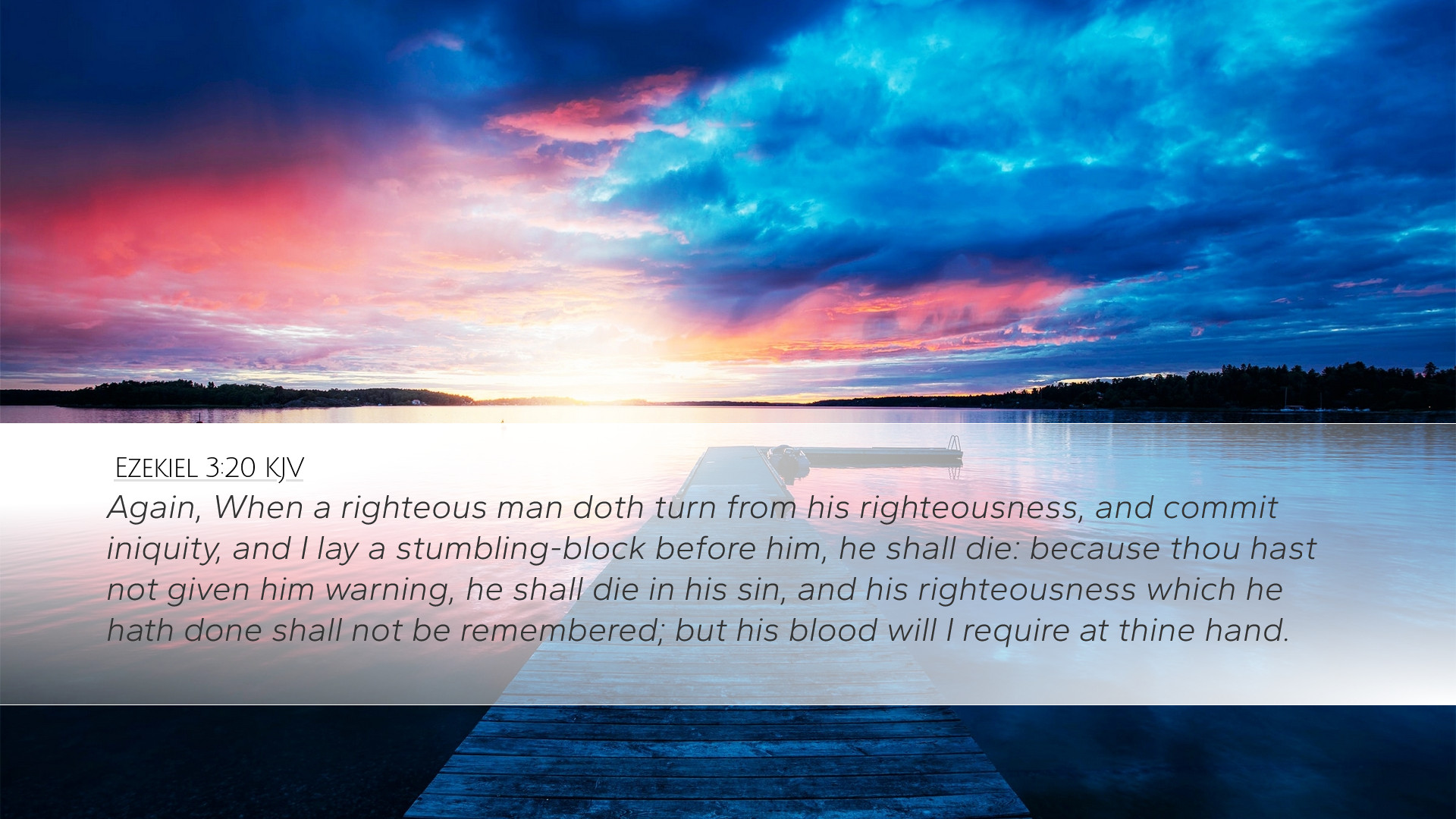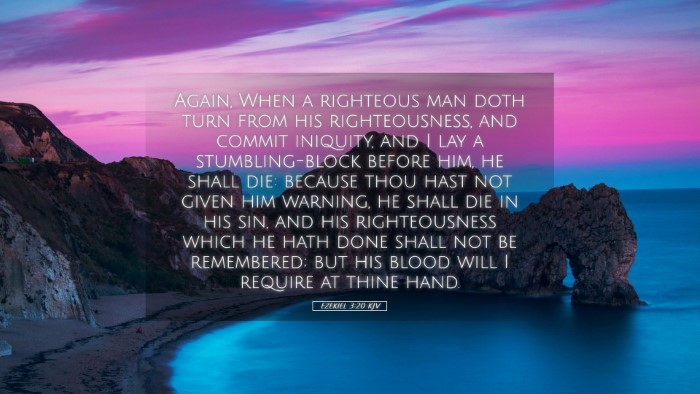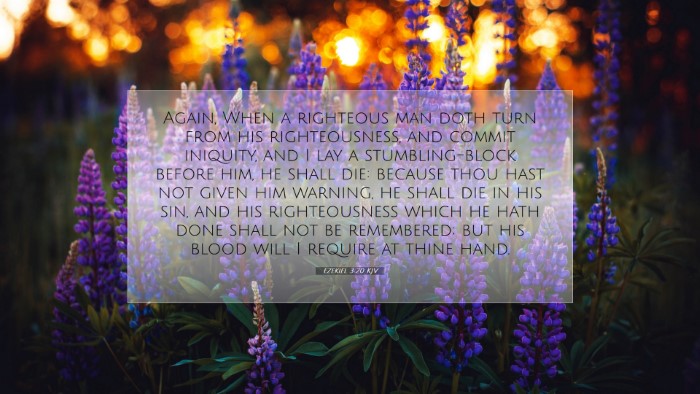Ezekiel 3:20 Commentary
Bible Verse: "Again, When a righteous man doth turn from his righteousness, and commit iniquity, and I lay a stumblingblock before him, he shall die: because thou hast not given him warning, he shall die in his sin, and his righteousness which he hath done shall not be remembered; but his blood will I require at thine hand."
Introduction
The verse Ezekiel 3:20 presents a solemn warning regarding the responsibilities of a prophet and the dire consequences of failing to deliver God's messages. It is imperative for students of the Word to grasp the weight of these admonitions, as they highlight both divine justice and pastoral duty.
Exegesis
This verse underscores the critical nature of accountability in the realm of spiritual leadership. According to Matthew Henry, "God's messengers are as watchmen to Israel," signifying that their role is to warn others concerning the implications of turning away from righteousness.
The Concept of Righteousness
Matthew Henry elaborates on the notion of righteousness: "It is a condition most enviable, yet precarious if not maintained." The righteous man, when he strays from his path, becomes vulnerable to spiritual demise. This highlights the fragility of faith and integrity.
Meaning of the Stumbling Block
Albert Barnes interprets "a stumbling block" as a means through which God tests one's fidelity. He asserts that the challenges presented are not unintended but rather appointed by God. When a righteous individual faces temptation, the stakes are elevated, and the need for vigilance becomes paramount.
Divine Justice
The latter part of the verse does not shy away from the harsh reality of divine retribution. The phrase, "his blood will I require at thine hand," emphasizes the grave responsibility of spiritual leaders. Adam Clarke states that "the spiritual state of others is intertwined with the faithfulness of the prophet." Failing to provide warnings results in the shedding of spiritual lives, implicating the watchmen of Israel.
The Role of Warning
Warnings serve as both a preventive and corrective measure. They are crucial for the maintenance of community holiness and individual righteousness. The failure to deliver such warnings can lead to tragic outcomes, for which the watchmen bear profound accountability. Clarke emphasizes that neglecting this duty results in not only the loss of the individual but also affects the collective spiritual fabric of the community.
Applications for Pastors and Leaders
This passage is laden with implications for contemporary pastors and leaders. They are reminded of their role not just as spiritual guides, but also as guardians of faith who must actively engage in the oversight of their congregations. Leaders must maintain a vigilance to discern when members are straying from righteousness.
- Active Engagement: Pastors must take a proactive approach in teaching and admonishing their congregations.
- Understanding Consequences: Recognizing that neglecting this duty has eternal consequences for individuals and the community.
- Fostering Accountability: Encouraging an environment where accountability is embraced and addressed.
Theological Reflection
This passage invites a deeper theological reflection on the nature of divine grace and justice. It emphasizes that grace does not eliminate the necessity of warning or discipline. Righteousness must be pursued actively, and the faithful must endure even when circumstances are difficult.
The Balance of Grace and Accountability
Understanding this balance is critical for theological education and pastoral practice. As Barnes notes, "God's mercy is profound, but His justice equally requires acknowledgement and response." The theological implications speak to the heart of the Gospel message, where grace is never free of the call to holiness.
Conclusion
Ezekiel 3:20 serves as a poignant reminder of the responsibilities held by spiritual leaders and the grave implications of spiritual neglect. As students and theologians dive into this text, they are called not only to appreciate the nuances of the prophetic role but also to embody the calls to action reflected in the warning provided.


